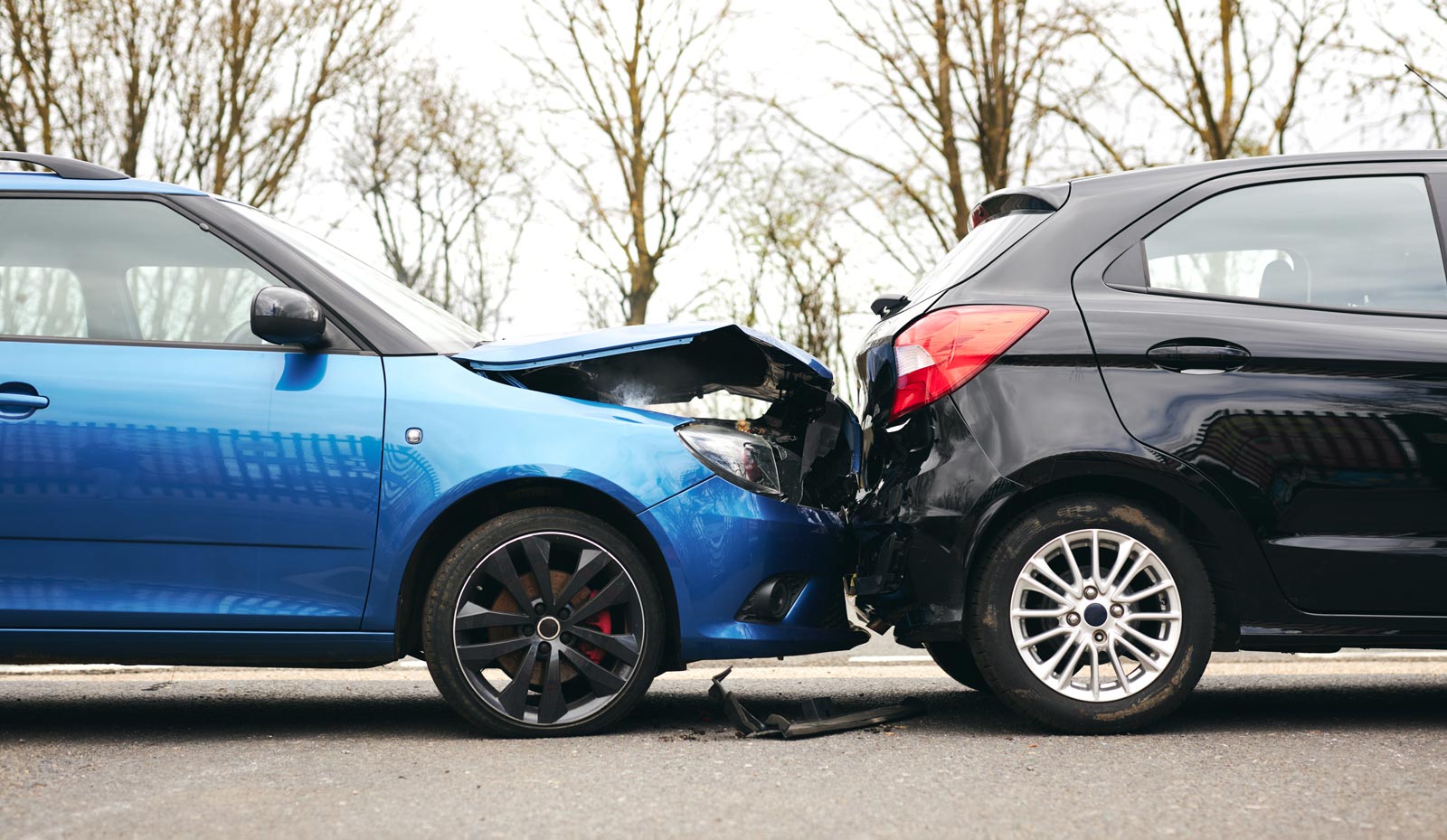As a passenger, you put a lot of trust in the driver, and assume they’ll make the safest choices while behind the wheel. However, sometimes they or other drivers (or both) make mistakes that lead to passenger injuries.
Being a passenger in a car accident is unlike being a driver. While your path to compensation might look different, you have as much right to pursue financial support as anyone else involved.
This post will explore the legal options of a car accident passenger and outline potential complications in your case. We’ll also make it clear how a personal injury attorney can help.
Your Claim Depends on Who’s at Fault
Just like any personal injury or car accident claim, the process of being compensated as a passenger hinges on who is at fault. Generally, this is one of the drivers—in some cases it’s more than one driver.
For example, if a driver turns left when oncoming traffic has the right of way and winds up getting hit, they are clearly at fault. However, if the driver who hits them was speeding, the speeding driver may be partially at fault.
Because Texas is an at-fault state, any driver who contributed to the accident may owe compensation to injured parties. In addition, because of the modified comparative fault rule in Texas, anyone found more than 50% at fault for the accident is not eligible to receive compensation.
Just like any personal injury or car accident claim, the process of being compensated as a passenger hinges on who is at fault. Generally, this is one of the drivers—in some cases it’s more than one driver.
As an injured passenger, multiple at-fault parties can mean more money for your expenses. This is especially helpful if one of the at-fault parties has no insurance, or too little to cover your costs.
Sometimes, fault lies with people or organizations who weren’t even at the scene of the accident. For example, if the car you were in was hit by a semi-truck, the driver may not be alone in their responsibility. The company they drive for, the cargo loaders, and even the mechanic may be partially at fault.
While an injured driver is usually concerned with the fault of other drivers, an injured passenger may realize that their driver, a friend or family member, is at fault. While this can be awkward, it doesn’t mean you can’t demand compensation or file a lawsuit (more on that later).
Can a Passenger Be at Fault for a Car Accident?
Usually, a passenger won’t be suspected of fault. In rare cases, a passenger might bear responsibility for an auto accident. An extreme example would be a passenger who unexpectedly grabs the wheel from the driver and steers into another vehicle or object, or someone who shouts to the point of distracting the driver.
In a more likely situation, an insurance company might try to shift blame to a passenger who knowingly rode with an at-risk driver. Framing this as an “assumption of risk” or “comparative fault,” the adjuster would argue that you were aware of the dangers of the reckless or drunk driver, but chose to ride with them anyway.
However, a skilled car accident lawyer typically can be fight back against these arguments or reduce their effectiveness. In most cases, the primary blame will lie with the person behind the wheel, not a passenger.
How to Make an Insurance Claim
Passengers injured in car accidents file claims the same way a driver would, usually with the at-fault driver’s insurance. The main difference is that you might file claims against all drivers involved, including your own.
To avoid complicating your case and saying anything that could affect your chances for fair compensation, contact an experienced personal injury lawyer before interacting with an auto insurance company. Legal professionals are adept at talking to insurance companies about fault and compensation.
Following are the steps for making a claim after a car accident (these steps assume a person was injured or killed in the accident):
- Confirm that the accident was reported by the police. If it wasn’t, file a report with the Texas Department of Transportation (DOT) within 10 days of the accident.
- Contact the insurance company of the at-fault driver(s) to file a claim according to their procedures. When you file a claim against someone else’s insurance, it’s called a third-party claim.
- If you know that the at-fault driver(s) doesn’t have insurance, or has too little to cover your expenses, file a claim with your own insurance company.
Sometimes you’ll want to file claims against a person or entity other than a driver (see truck accident example above). Be aware that dealing with insurance companies and adjusters for large organizations can be extremely difficult.
To avoid complicating your case and saying anything that could affect your chances for fair compensation, contact an experienced personal injury lawyer before interacting with an auto insurance company.
Again, this is a tricky process when it comes to reporting only the facts and not saying anything that could negatively impact your case, especially if you file claims against more than one party. If you call a car accident lawyer right away after the accident, they will talk to the insurance companies on your behalf.
RELATED: Injured by an Uber, Lyft, or Taxi Driver? Here Are Your Options
What if a Commercial Driver Injured Me?
The roadways are full of commercial drivers, and because of rideshare companies like Uber and Lyft, a lot of them carry passengers. These drivers are as prone as anyone else to getting in an accident, and those passengers as likely to be injured.
Many businesses and trucking companies purchase significant insurance coverage for their commercial vehicles. For example, Uber and Lyft drivers have up to $1 million in liability insurance coverage. (Your lawyer will help you identify all the insurance policies that apply to your personal injury case.)
Any time you’re fighting a commercial defendant to get the compensation you deserve, there’s an added level of complexity, as these companies are prepared for the fight. Many of them have lawyers and crisis management teams on call, and will do their best to shift the blame.
If your wreck involved a commercial driver, you need a lawyer who’s experience with these cases. At Crosley Law, we regularly represent people injured by commercial vehicles, and are ready to discuss your case with you.
RELATED: Crosley Law Helps a Bus Passenger After a Hit-and-Run Crash: Larry’s Story
What if Multiple Passengers are Injured?
Perhaps you weren’t the only person hurt and facing medical expenses in the accident. The at-fault parties might owe financial compensation to multiple injured people.
Unfortunately, the insurance policies typically used to cover that compensation have limits. In Texas, drivers must carry a minimum coverage of $30,000 per injured person, up to $60,000 per accident. If four injured people have combined medical costs of $100,000, there simply isn’t enough to go around.
If the at-fault party’s insurance isn’t enough to cover your costs, you can seek compensation through your own coverage if you have the following policies (which we encourage all drivers to have):
- Uninsured/underinsured motorists (UIM): Despite the minimum insurance requirements in Texas, many drivers carry too little or no insurance. If you have a UIM policy, it can help cover costs when the at-fault party’s funds fall short.
- Personal injury protection (PIP): Sometimes called no-fault insurance, a PIP policy covers injuries no matter who is at fault. If you have this coverage, it can supplement or perhaps replace the at-fault driver’s policy if it’s too low or non-existent.
- Medical Payments (Med Pay): Similarly to PIP coverage, med pay doesn’t depend on who is at fault, so is a great option when other ones don’t cut it. It only covers medical bills and is usually quite limited, but med pay can certainly help.
You may be able to file personal injury claims against your driver’s UIM and PIP insurance coverage as well, regardless of who was at fault.
This can quickly complicate a case and cause negotiations to escalate into a lawsuit and maybe even a trial. Working with an experienced lawyer is in your best interest when multiple passengers are hurt.
Your Relationship to Your Driver Could Impact Your Claim
When the driver of the vehicle you were in is at-fault for the accident, your relationship to them may impact how you get compensated.
Historically, people couldn’t sue close family members for personal injury, and in some states they still can’t. The thinking was that it wasn’t good for the family unit, and in the case of spousal and parent-child relationships, someone could wind up suing a person who shares the same insurance policy, complicating things more than was necessary.
However, now Texas does allow spouses and other family members to sue each other in the wake of a car accident.
If you are injured in an accident that’s caused by your driver, and that driver is a friend or family member, it’s worth considering how a lawsuit may impact your relationship. In the case of an immediate family member, also think about how your actions could influence an insurance policy that you share.
When the driver of the vehicle you were in is at-fault for the accident, your relationship to them may impact how you get compensated.
RELATED: Passenger Pursues Lawsuit Against Driver and Gets Settlements: Bethany’s Story
Contact Crosley Law for Help with Your Passenger Car Accident Claim
If you were injured in a car accident as a passenger, you don’t have to face the complexities and uncertainties of your case alone. The experienced attorneys at Crosley Law have guided many injured passengers through this process and are ready to listen to you.
We always begin the attorney-client relationship with a free consultation about your case. To set yours up today, call 210-LAW-3000 | 210-529-3000 or fill out our easy contact form and someone from our legal team will assist you.
References
Goguen, D. (n.d.). Passenger injury claims after a car accident. AllLaw.com. Retrieved from https://www.alllaw.com/articles/nolo/auto-accident/passenger-injury-claims.html
Lynch, A. (2021, Oct. 6). Rideshare insurance: everything you need to know. The Zebra. Retrieved from https://www.thezebra.com/auto-insurance/driver/profession/rideshare-insurance/#:~:text=While%20Lyft%20and%20Uber%20both%20follow%20the%20Period,and%20%2425K%20per%20accident%20for%20property%20damage%20
Texas car accident report basics. (2018, Dec. 6). FindLaw.com. Retrieved from https://www.findlaw.com/state/texas-law/texas-car-accident-report-basics.html
Texas Department of Insurance. (2021, May 6). Automobile insurance guide. Texas Department of Insurance. Retrieved from https://tdi.texas.gov/pubs/consumer/cb020.html
The content provided here is for informational purposes only and should not be construed as legal advice on any subject.









